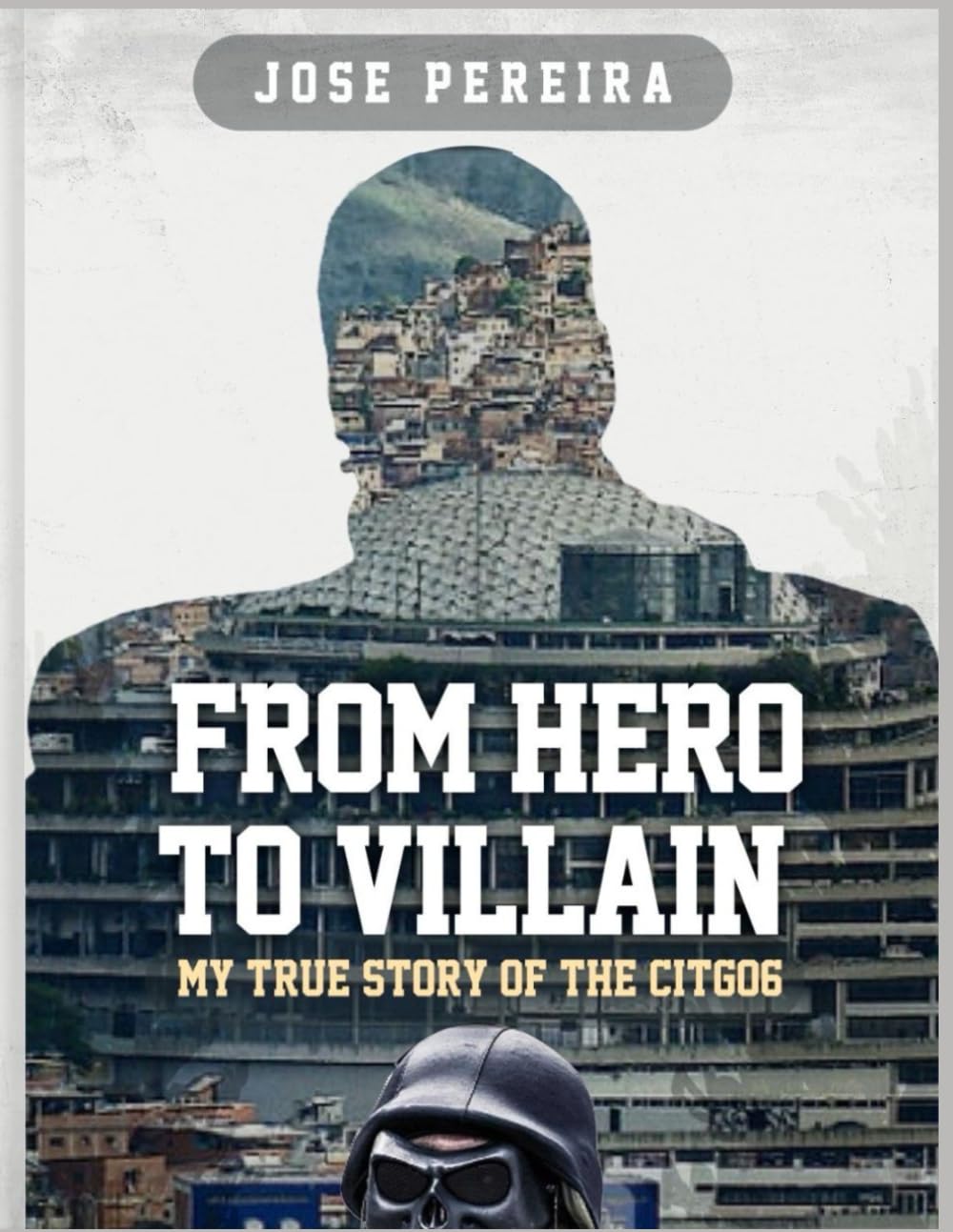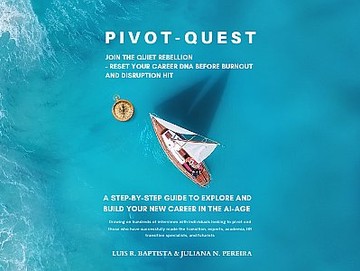
by Sean Colligan
In the summer of 2017, long-time oil & gas industry executive Jose Pereira was preparing for his retirement. After decades of experience working with oil companies all over the world, he planned to step back from his position as CEO of Citgo Petroleum to an advisory role.
Being a seasoned business leader, he still knew better than to put all his personal finance eggs in one basket, and thought it best to make a “plan B” to ensure some stable income for his family after retiring. Pereira’s wife had her own experience in small business, operating a small kitchen serving fresh daily meals when they lived together in their home country of Venezuela. The couple decided to become franchisees of a bakery in their current hometown of Houston, Texas.
But as any business owner knows, even with the most careful designs, things don’t always happen according to plan. Pereira and his wife were reminded of this on the day they opened their new bakery on August 26, 2017, a date which Pereira remembers precisely.
How does he remember the exact date?
“Because that was the day that [hurricane] Harvey hit,” he recalls. Barely one day after opening, their new business was flooded with rainwater, and the couple found themselves having to start again. Still confident with their “plan B”, the storefront was rebuilt, and they reopened the bakery in October 2017, another time that remains fresh in Pereira’s mind.
Why was this re-opening so unforgettable for him?
Because it was, as he says, “one month before my situation happened.”
The “situation” Pereira refers to is the series of events he writes about in his first book, From Hero to Villain: The True Story of the Citgo 6. In November 2017, on a routine trip to Venezuela representing Citgo, Pereira and 5 other executives were suddenly arrested by government authorities. Without evidence, the government of Venezuela charged the 6 men with “corruption”, labeled them “traitors” and “spies”, and they were immediately thrown in prison.
In an instant, Pereira’s life, his retirement, his “plan B”, his freedom and his future with his family were plunged into uncertainty. Over the next 5 years, Pereira and the other 5 executives endured hunger, disease and isolation while their loved ones could only wait and hope as media outlets around the world reported frustratingly infrequent updates on the fate of the “Citgo 6”.
“It was something I couldn’t believe that had happened to me,” says Pereira. “And that’s why my book is called From Hero to Villain.”
Born in Venezuela, Pereira, so to speak, has oil in his blood. His grandfather was Dutch, arriving in Latin America in 1920 working with Royal Dutch Shell (now Shell). Next, his father worked in different American and Venezuelan oil & gas companies. This meant Pereira spent much of his childhood between the US and Venezuela, becoming very comfortable in both environments.
While Pereira’s work took him all over the world, he frequently returned to Venezuela, a country with a long history of political turmoil and different restructurings of its oil industry. However, whenever he visited the country before, he would often receive a warm welcome (“like a hero,” in Pereira’s words), no matter who was in charge. Then without warning, he found himself caught in a political and economic tug-of-war between the 2 countries he’d always called home.
“Suddenly, when this happened to me, I became the worst villain,” says Pereira. “That’s why I put From Hero to Villain [as the title].”
The situation seemed beyond hopeless, but against all odds, Pereira used whatever means he could to keep going and survive, which he retells in From Hero to Villain. A devoted husband and father, it’s no surprise that thinking of his family kept him going during his most desperate times. His wife, by the way, was still running the bakery back in Houston. “My wife kept running the store those 5 years,” Pereira says, “smiling and attending to people, with all the things she was going through.”
Surprisingly, this desperate situation led him to find connections in an unlikely place, such as his Citgo coworkers. A detail left out of other accounts of his ordeal in the media, Pereira admits that before they were imprisoned together, the “Citgo 6” “weren’t friends”. “We were colleagues, peers,” he recalls. “Some of these guys, it was the first time I saw them. Some of these guys I saw every month in a meeting or something like that.” Despite being only professional acquaintances, however, Pereira found himself forming unlikely bonds with his coworkers.
“When we got together and we began to hear each other’s stories, that was kind of a miracle. We were always talking about family, we were always talking about trips, we were talking about good memories. That always kept us having a good mindset.” This psychological perseverance would play a key role in his survival, as he describes in further detail in From Hero to Villain.
Since his return home, Pereira has been remarkably active. He not only wrote his first book, but has been working with political advocacy groups for other Americans unjustly imprisoned abroad and even began his own coaching program to teach other business leaders and entrepreneurs what he learned from surviving a seemingly hopeless predicament.
Pereira believes that all these undertakings have “definitely” helped him process the experience of his imprisonment, and his therapist agrees. “She always tells me that she’s surprised how I have been managing this,” Pereira says, referring to the therapist he sees regularly since returning home. “She said that the way I decided to verbalize it, to talk, to help others has helped me in my healing process.”
As for writing From Hero to Villain, Pereira says there were 3 major factors that compelled him to tell his story to the world: First was a love of books and reading from a young age, especially one famous novel that left a lasting impression on him. “I read Crime and Punishment when I was 14. And that book marked my life.” Dostoevsky’s timeless work had such an effect on Pereira that he even wanted to name his children after characters in the book, although his wife sternly refused.
Years after first reading it, Pereira was fascinated to learn that Dostoevsky began writing Crime and Punishment “in his mind” during his time as a prisoner in Siberia. And as if there weren’t enough coincidences around Pereira’s history with the novel, one event during his imprisonment in Venezuela, after he’d been relocated from an isolation to the bigger cell he shared with his Citgo colleagues, made it clear that he had to write From Hero to Villain.
“When [the guards] opened the door,” Pereira recalls with a smile, “and said, ‘Mr. Pereira, you got authorized a book,’ and when I saw the book was Crime and Punishment, that was not a coincidence. God was telling me, ‘you have to write your book.’”
Pereira’s second inspiration to write his story came from another book. This one was given to him by another political prisoner in Venezuela, a former army general. Given his relatively high status, the general would usually be allowed privileges like access to more books than other prisoners, and there was a particular title he wanted to share with Pereira.
"One day he said, ‘hey Jose, read this book,’” Pereira says. “Man’s Search for Meaning, Viktor Frankl. First time I heard about that book. When I read it, ‘wow’, I said, ‘this guy’s talking to me.’” With its harrowing account of the lives of prisoners in a Nazi concentration camp, this was another source of inspiration for Pereira to find reasons to keep going, even in the most dire of circumstances, and to write his experiences in a book of his own.
The third and final motivator for Pereira to write From Hero to Villain came in the form of another friend he made in jail, this time an incidental editor. As described in other media accounts of Pereira’s ordeal, he and his wife could only communicate when they were occasionally able to smuggle letters to each other.
"I was not thinking about the book,” Pereira says about his first few letters. “I was thinking that I was not gonna make it, and I was writing letters because I wanted my wife to have those letters.” This would eventually lead to the creation of From Hero to Villain, and he even began to refer to his planned book in later messages to his wife with a secret code: H2V.
But Pereira wasn’t sure how to compile these letters into a story. That’s when he found another connection in an unlikely place. "In jail, I had the opportunity to become friends with a very famous Venezuelan journalist,” Pereira says, whose name is mentioned in his book. Near the end of his imprisonment, after he’d suffered his heart attack and authorities were worried about losing him as a political bargaining chip, Pereira was allowed time outside to take morning walks. “And I was walking with this guy,” says Pereira, referring to the journalist. “We began to talk a lot, and I told him, ‘I want to write my book.’ And he began giving me advice on how to do it.”
After years of uncertainty, secret letters, smuggled books and unlikely friendships, Pereira’s story is finally available for the world to hear in From Hero to Villain. And on the heels of a “great” and “wonderful” experience bringing his book to life through Publishizer, he was quick to encourage another one of his friends to work with the platform as well. “I told him, because he’s beginning his journey with Publishizer as well, ‘man, you’re in the best hands ever.”
From a flooded bakery to a 5-year stint as a political prisoner, Pereira knows exactly how unpredictable life can be “Things in life can happen,” he says. “But the way you decide to manage it will be the game-changer for you.”



